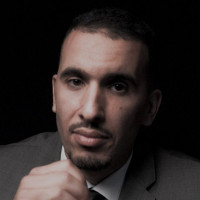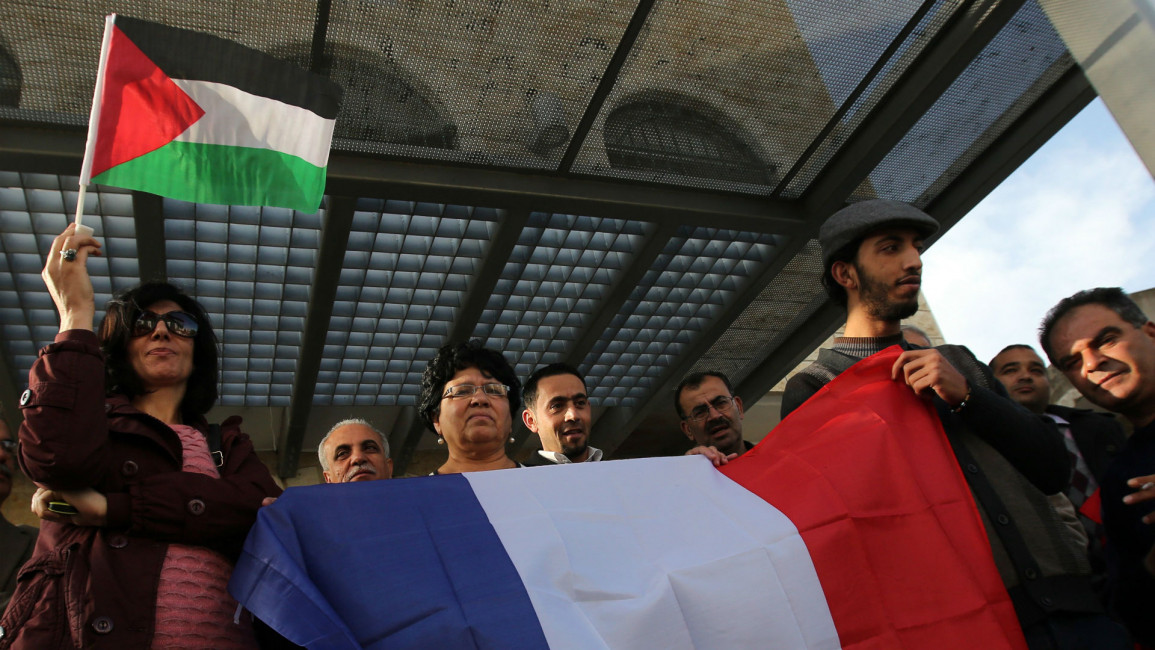
Victory to the Palestine movement in France!
The anti-separatism law which was passed in 2021 by the Macron government with the intention of clamping down on civil society, has been successfully challenged by three organisations in less than a month. Each resisted and managed to check mate the government after it attempted to dissolve the groups.
The Mosque of Pessac, which had been accused of “promoting radical Islam and preaching Salafi ideology” was threatened with forced closure for a period of six months. Its crime? Posting a message of support to Palestinians and criticising the government’s “reorganisation of French Islam” which should be prohibited given French laïcité law that separates church and state.
This victory is not only welcomed, but it should be celebrated as a historical moment. This is the first mosque in recent memory, to have defeated a government attempt to shut it down.
Rather than waiting passively and hoping for the best, members of the mosque and its leaders took the matter to court, spoke to the media, used social media to their advantage to raise awareness and even organised a rally in front of the council of the state where the decision was going to be made on the legality of the administrative closure.
''So rare is the presence of any hope when it comes to the French state’s repression, but the Mosque of Pessac has provided just that. Their resistance and win has paved the way for more Mosques to push back against state islamophobia and the targeting of Palestine solidarity.''
"The prefect of Gironde has taken a police measure which seriously and manifestly illegally undermines the freedom of worship.” It is in these terms that the council of the state rejected the government’s initiative.
So rare is the presence of any hope when it comes to the French state’s repression, but this has provided just that. Their resistance and win has paved the way for more Mosques to push back against state islamophobia and the targeting of Palestine solidarity.
Incredibly, this rebuttal was not the only one.
Two other collectives were targeted in what appears to be a witch-hunt against supporters of Palestinian liberation. In early March, the government decided to dissolve both organisations thanks again to the infinite repressive possibilities offered by the anti-separatism law.
The Action Palestine Committee and Collective Palestine Vaincra (Palestine will win collective) both also faced the threat of being shut down.
Palestine Vaincra was accused of “testing the limits of freedom of speech” by daring to boycott israeli products, among other fallacious things. Based on these allegations, the ministry concluded that the collective was preaching “hatred, discrimination and violence towards Jews.”
The Action Palestine Committee was targeted for “commemorating the Nakba”, for declaring that “the only goal of Zionism is ethnic cleansing” as well as “questioning the legitimacy of Israel.”
However, both took their fight for survival to the highest administrative court to challenge the decision and just last month, the council of the state suspended the closures and concluded that the government’s accusation of antisemitism were “unfounded”.
These are landmark victories.
Given the obvious drift towards authoritarianism initiated years ago in the name of fighting terrorism, it took courage and determination from these organisations to resist. Just consider all the policies introduced under Macron that have turned France into more and more of a Police state: the asylum and immigration law of 2018, the public order during rallies law of 2019, the global security law of 2021 and the penal responsibility and interior security law of 2022.
This is of course coupled with the fact that France has for years been criminalising the BDS movement and its supporters based on the 2010 ministry circular (CRIM-AP N° 09-9006-A4) that prohibits the boycott of Israeli goods. Despite the European court of human right’s decision to oppose it, this repressive policy is still in effect and was upheld by left-leaning Christiane Taubira while she was the justice minister.
Past demonstrations in support of Palestinian’s right to exist and resist Israeli occupation have all been met with brutal repression from respective governments. This was the case in 2014, 2019 and 2021 as Israel waged its military onslaughts on Palestinians. Protestors were met with police violence.
Meanwhile, as organisations like Human Rights Watch, Amnesty International and even revered US university Harvard, are all publishing report after report on Israeli apartheid. All of it falls on deaf ears, however, and Macron’s response remains unchanged.
A few months ago the French president sent his PM Jean Castex to deliver a speech at a pro-Israel lobby event in which he declared: “It is not acceptable, in the name of a just fight for freedom, for organisations to misuse historically charged and infamous terms to describe the state of Israel”.
It is also no coincidence that the Imam’s charter, introduced with the anti-separatism law, has banned imams from speaking of so-called “foreign conflicts” in their sermons. This was an obvious attempt to censor any discourse in support of Palestine. Yet when French Synagogues are used as to recruit French Jews for the Israeli occupation army, no public office holder would dare calling for a charter of rabbis.
The examples set by the Pessac Mosque, Collectif Palestine Vaincra and the Action Palestine committee, prove that nothing can be expected from the government in terms of the defence of freedom of speech and solidarity with the oppressed. These successive defeats have to be interpreted as an invitation to keep on pressing the French government and not let it have it its way when it comes to human rights and civil liberties.
Some figures like Tarek Oubrou, known as the Imam of Bordeaux, who is a historic figure of the Muslim brotherhood oriented organisation Muslims of France (formerly UOIF) tried to use his platform to legitimise the government’s narrative by putting the blame on the occupied and the occupier. Oubrou even attended the CRIF’s (main Israeli lobby in France) dinner to bemoan the obsession of young Muslims with Palestine.
Others like the Collective Against Islamophobia (CCIF) had made the cynical calculation that by refraining from speaking of Palestine, the oppression of Muslims would somehow be eased. This is despite the fact that pro-Israel groups and figures in France are at the forefront of fuelling islamophobia. The dissolution by the state of the CCIF also proved that burying your head in the sand, and avoiding the necessary political confrontations will not save you.
Indeed the years to come are going to be tough for those on the side of justice. Macron spent his first mandate expanding the state’s repressive apparatus. The realities of “shrinking space” have already been amply documented and organisations will have to go against all odds to challenge the government and pave the way for others to follow.
If macron passed such openly racist and authoritarian policies, it is because he has been led to believe that he could do it and get away with it. So far he has. Hopefully, and for the sake of the liberation of Palestine and all those facing oppression, it won’t be the case for much longer. We must keep up the pressure, we must fight on and we absolutely cannot afford to concede.
Yasser Louati is a French political analyst and head of the Committee for Justice & Liberties (CJL). He hosts a hit podcast called "Le Breakdown with Yasser Louati" in English and "Les Idées Libres" in French.
Follow him on Twitter: @yasserlouati
Have questions or comments? Email us at: editorial-english@alaraby.co.uk.
Opinions expressed in this article remain those of the author and do not necessarily represent those of The New Arab, its editorial board or staff.




